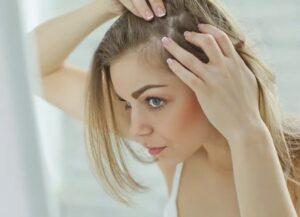
Dry hair is a real pain, especially when your hair doesn’t feel soft and shiny. The good news is you don’t need a whole arsenal of expensive products to bring your hair back to life. With the right care routine and some nourishing tips you can turn your dry hair into smooth hydrated hair.
In this post we’ll go into the best practices for dry hair, including what causes it, how to prevent it and simple remedies you can try at home. Whether your hair is dry from over styling, environmental factors or product buildup we’ve got you covered. Ready to revive your locks? Let’s explore easy and effective ways to care for dry hair and bring back its healthy glow!
Causes Of Dry Hair
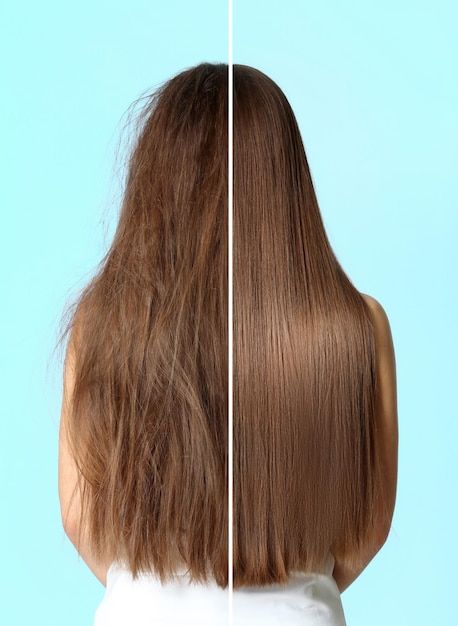
Dry hair can be a frustrating issue. It often looks dull, feels rough, and is prone to breakage. Understanding the causes of dry hair is the first step to effective care. Let’s have a look to the main factors that contribute to dry hair, including environmental factors and chemical treatments.
Environmental Factors
Environmental factors play a significant role in causing dry hair. Exposure to harsh weather conditions and pollutants can sap moisture from your hair. Here are some key environmental causes:
- Sun Exposure: UV rays can damage the cuticle, leading to moisture loss.
- Wind: Wind can tangle hair and cause breakage, leading to dryness.
- Cold Weather: Cold air lacks humidity and can strip moisture from your hair.
- Pollution: Pollutants in the air can settle on your hair, causing dryness and damage.
Consider using protective measures such as hats or scarves. Use hydrating hair products to combat these environmental factors.
Chemical Treatments
Chemical treatments can severely impact the health of your hair. Frequent use of chemical treatments can strip your hair of its natural oils. Here are some common chemical treatments that cause dry hair:
- Hair Dye: Hair dyes contain chemicals that can weaken hair strands and cause dryness.
- Perms: Perms use strong chemicals to alter the hair’s structure, leading to dry and brittle hair.
- Relaxers: Relaxers straighten curly hair but can damage the hair shaft, resulting in dryness.
- Bleaching: Bleaching removes natural pigment and moisture, making hair extremely dry.
Limit the use of these treatments. Opt for natural alternatives to maintain healthier hair. Always follow up with deep conditioning treatments to restore moisture.
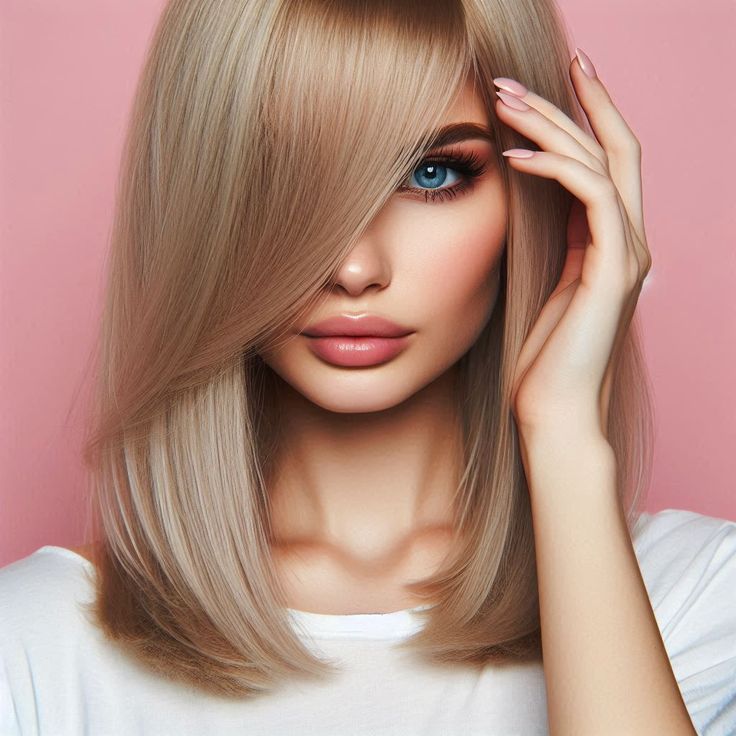
Daily Hair Care Routine For Dry Hair
Dry hair can be a challenge, but with the right daily care routine, you can restore its shine and softness. A daily hair care routine tailored for dry hair focuses on gentle practices that replenish moisture and prevent further damage. This guide will help you establish an effective routine to keep your hair healthy and hydrated.
Do Gentle Cleansing
Cleansing dry hair requires special attention to avoid stripping away essential oils. Use a sulfate-free shampoo that cleanses without harsh chemicals. Limit washing to 2-3 times a week to maintain natural oils.
- Choose lukewarm water for washing; hot water can dry out hair.
- Massage your scalp gently to stimulate blood flow and distribute natural oils.
- Rinse thoroughly to remove all shampoo residue.
For those with extremely dry hair, consider co-washing (using conditioner instead of shampoo) once a week. This method cleanses without stripping moisture.
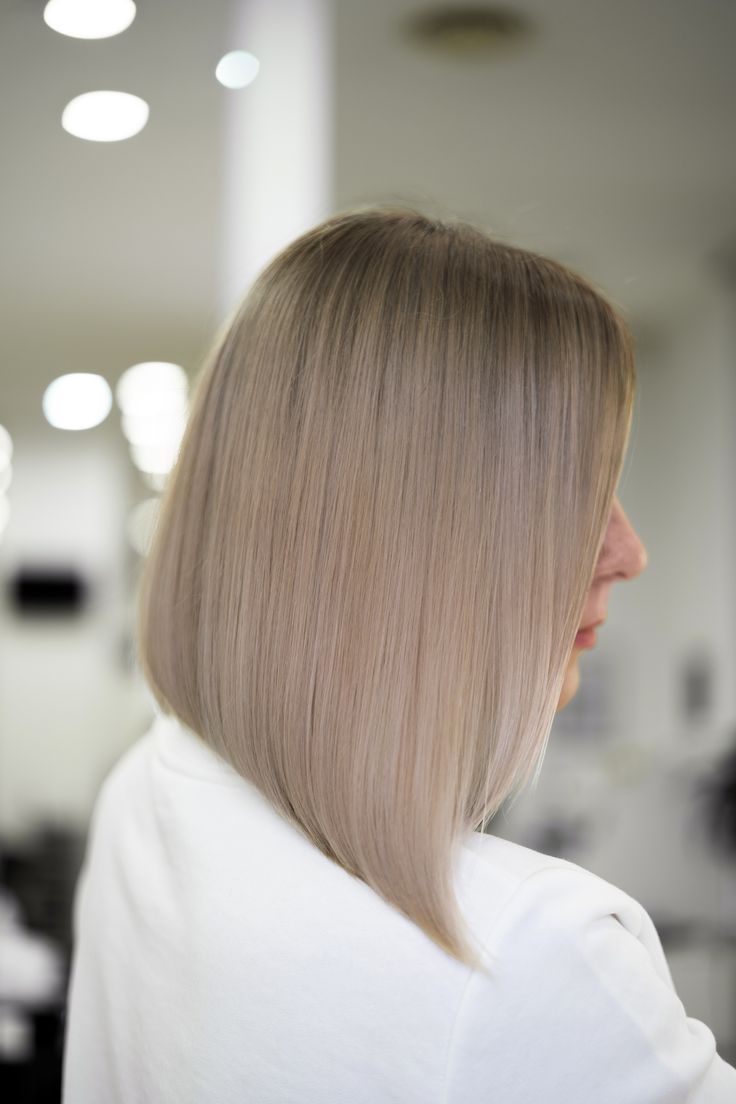
Follow A Good Conditioning Routine
Conditioning is crucial for dry hair. Use a deep conditioner every time you wash your hair to replenish moisture. Leave it on for at least 5 minutes before rinsing.
Apply leave-in conditioner after every wash to protect hair throughout the day. It adds an extra layer of hydration and shields against environmental damage. For extra nourishment, use hair oils like argan or coconut oil. Apply a small amount to the ends of your hair to prevent split ends and breakage.
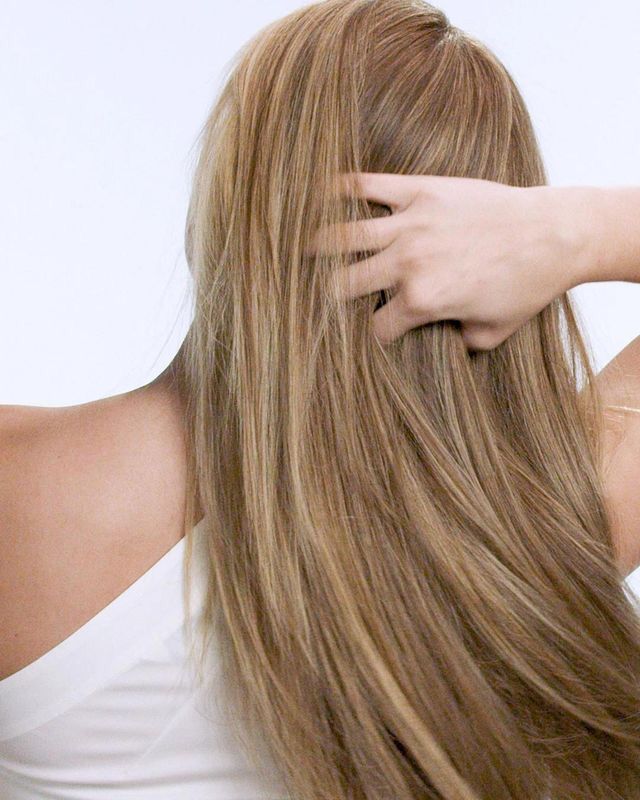
How To Do Deep Conditioning For Excessive Dry Hair
Dry hair can be a challenge, but deep conditioning treatments can help restore its health and shine. Regular deep conditioning nourishes the hair, provides essential moisture, and repairs damage. Whether you prefer homemade solutions or store-bought products, there are effective options available for every hair type and need.
Related Article: How to Manage Long Hair in Summer!
Try DIY Masks
DIY masks are an affordable and natural way to care for dry hair. You can use ingredients from your kitchen to create effective deep conditioning treatments. Here are some popular DIY masks:
- Avocado and Honey Mask: Mash one ripe avocado and mix it with two tablespoons of honey. Apply the mixture to your hair, focusing on the ends. Leave it on for 30 minutes before rinsing.
- Coconut Oil and Egg Mask: Mix two tablespoons of coconut oil with one egg. Apply to your hair, cover with a shower cap, and leave it on for 20 minutes. Rinse with cool water.
- Yogurt and Banana Mask: Blend one banana with half a cup of yogurt. Apply the mask to your hair and leave it for 30 minutes. Rinse thoroughly.
If Too Busy, Try Store-bought Options
Store-bought deep conditioners are convenient and formulated with powerful ingredients. Here are some top choices:
- Moroccanoil Intense Hydrating Mask: This mask is infused with argan oil, which deeply hydrates and improves hair elasticity.
- SheaMoisture Manuka Honey & Mafura Oil Intensive Hydration Hair Masque: This product contains natural oils and honey to provide intense moisture and restore hair health.
- Olaplex No. 3 Hair Perfector: This treatment repairs and strengthens hair from within, making it ideal for damaged and dry hair.
Choosing The Right Products
Dry hair needs special care to stay healthy and vibrant. Choosing the right products is essential for maintaining moisture and preventing damage. The right shampoos and conditioners can make a big difference in your hair’s appearance and feel. Let’s explore the best options for dry hair.
Also Read: 11 Secret Tips For Daily Hair Moisturization
Best Shampoos For Dry Hair
Shampoos designed for dry hair should offer hydration without stripping the natural oils. Look for products with nourishing ingredients. Here are some key points to consider:
- Avoid sulfates: Sulfates can strip your hair of natural oils. Choose sulfate-free shampoos.
- Hydrating ingredients: Ingredients like aloe vera, argan oil, and shea butter provide extra moisture.
- Gentle formulas: Shampoos with gentle, natural ingredients are less likely to cause dryness.
Best Moisturizing Conditioners For Dry Hair
Conditioners are crucial for adding moisture and detangling dry hair. Choosing the right one ensures your hair remains soft and manageable. Consider these factors:
- Rich in emollients: Emollients like shea butter and coconut oil help to lock in moisture.
- Protein treatments: Proteins such as keratin strengthen and repair hair strands.
- Leave-in options: Leave-in conditioners provide ongoing hydration and protection.
By choosing the right shampoos and conditioners, you can effectively manage dry hair. Look for products that hydrate, nourish, and protect your hair.
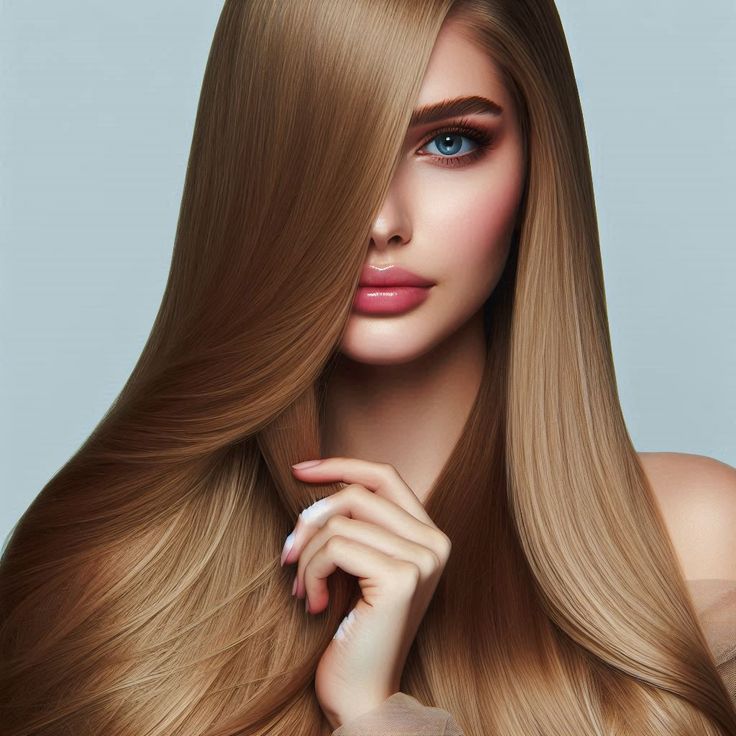
Styling Tips For Dry Hair
Dry hair needs extra care, especially while styling. Using the right techniques can prevent further damage and keep your hair healthy. This guide will help you with some essential styling tips to maintain the beauty of your dry hair.
Heat Protection
Heat styling tools can cause significant damage to dry hair. Always use a heat protectant before using any styling tools. This product creates a barrier between your hair and the heat, reducing damage. Here are some heat protection tips for dry hair:
- Lower the heat setting on your styling tools. High temperatures can strip moisture from your hair.
- Apply heat protectant spray or serum evenly before blow-drying, curling, or straightening.
- Use ceramic tools as they distribute heat more evenly and gently.
- Limit heat styling to once or twice a week to allow your hair to recover.
Choosing the right heat protectant product is crucial. Look for ingredients like argan oil, coconut oil, and vitamin E. These nourish and protect your hair.
Air-drying Techniques For Dry
Air-drying is a gentler alternative to heat styling. It helps retain your hair’s natural moisture. Here are some effective air-drying techniques for dry hair:
- Towel Dry Gently: Use a microfiber towel to squeeze out excess water. Avoid rubbing your hair, as this can cause frizz and breakage.
- Apply Leave-In Conditioner: Use a leave-in conditioner to keep your hair hydrated and manageable.
- Detangle with a Wide-Tooth Comb: Gently detangle your hair while it’s still damp. This reduces breakage and helps in even distribution of products.
- Braid or Twist Your Hair: Create loose braids or twists to encourage natural waves and reduce frizz.
- Avoid Touching Your Hair: Once styled, avoid touching your hair until it is completely dry. This helps in maintaining the shape and reducing frizz.
Using the right products while air-drying is essential. Look for moisturizing creams, leave-in conditioners, and anti-frizz serums. These products provide the necessary hydration and control. Here are some product recommendations:
- Moisturizing Cream: Keeps hair soft and hydrated.
- Leave-In Conditioner: Provides continuous moisture throughout the day.
- Anti-Frizz Serum: Controls frizz and adds shine.
Get Hydration From Within For Healthy Hair
Dry hair can be a pesky problem. It looks dull, feels brittle, and is prone to breakage. One of the most effective ways to combat dry hair is through hydration from within. By ensuring your body is well-hydrated and nourished, you can improve the health and appearance of your hair.
Drink More Water
Water is crucial for overall health. It helps keep your hair hydrated and looking healthy. Drinking enough water daily can make a significant difference in the texture and strength of your hair. Experts recommend drinking at least 8 glasses of water a day. This can vary based on your activity level and environment.
Here are some key reasons why water is essential for your hair:
- Hydration: Water helps in keeping your scalp hydrated, which is essential for healthy hair growth.
- Circulation: Proper hydration improves blood circulation, delivering essential nutrients to hair follicles.
- Detoxification: Water helps flush out toxins, which can affect the health of your hair.
Nutritional Supplements To Prevent Dry Hair
While water is essential, certain nutritional supplements can also help improve the health of your hair. These supplements can provide additional nutrients that may be lacking in your diet.
Common supplements for hair health:
- Biotin: Known for promoting hair growth and strength.
- Omega-3 Fatty Acids: Helps maintain hair shine and prevents dryness.
- Vitamin E: Improves blood circulation and supports hair growth.
- Iron: Essential for carrying oxygen to hair follicles, preventing hair loss.
How to incorporate supplements:
- Consult with a healthcare provider to determine which supplements are right for you.
- Follow the recommended dosage on the supplement packaging.
- Combine supplements with a balanced diet for best results.
Using supplements along with proper hydration can significantly improve the condition of your dry hair. Remember, healthy hair starts from within.
How To Avoid Hair Damage As More As Possible
Dry hair can be a challenge to manage. It often looks dull, feels rough, and is prone to breakage. Caring for dry hair involves more than just using the right products. It’s crucial to avoid damage that can worsen the condition of your hair. Here are some tips on how to avoid hair damage to dry hair as more as possible.
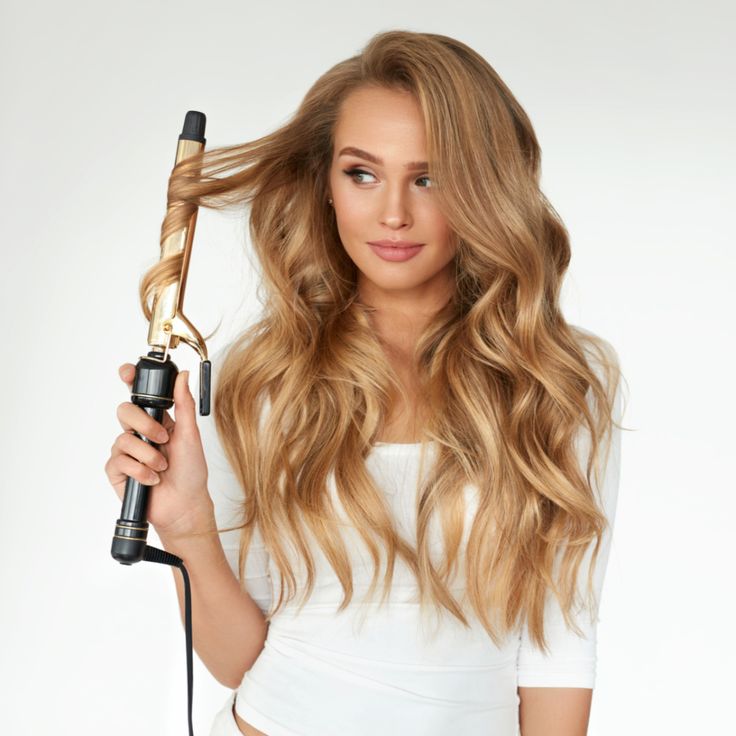
Limit Heat Styling
Heat styling tools like blow dryers, straighteners, and curling irons can cause severe damage to dry hair. The high temperatures strip away the natural oils, leaving hair brittle and prone to breakage. To protect your hair:
- Use heat styling tools sparingly. Try to limit their use to special occasions.
- Always apply a heat protectant spray. This acts as a barrier between the heat and your hair.
- Opt for air-drying. Whenever possible, let your hair dry naturally to avoid the heat.
For those who must use heat styling tools, consider the following table for the best temperature settings:
| Hair Type | Recommended Temperature |
|---|---|
| Fine Hair | 250-300°F |
| Normal Hair | 300-350°F |
| Thick Hair | 350-400°F |
Try Protective Hairstyles To Prevent Hair Damage
Protective hairstyles help in minimizing the exposure of hair to environmental factors. They also reduce the frequency of manipulation, which can lead to breakage. Here are some popular protective styles:
- Braids: They keep hair in place and reduce tangling.
- Buns: A bun can be both stylish and protective.
- Twists: Twisting hair reduces the risk of damage.
- Wigs and Extensions: These options give your natural hair a break from styling.
When choosing a protective hairstyle, ensure it is not too tight. Tight hairstyles can cause traction alopecia, leading to hair loss. Also, give your hair breaks between protective styles to allow your scalp to breathe.
Incorporate regular moisturizing treatments to keep your hair hydrated while in a protective style. Use oils such as coconut oil or argan oil to seal in moisture. These oils nourish your hair and add a protective layer against environmental stressors.

Go For Professional Treatments As Last Option
Dry hair can be challenging to manage, but professional treatments can offer significant relief. These treatments go beyond home remedies, providing deep nourishment and repair. Let’s explore some effective professional treatments for dry hair.
Salon Treatments
Salon treatments offer deep conditioning and hydration, which regular conditioners cannot provide. Here are some popular salon treatments for dry hair:
- Keratin Treatment: This treatment infuses protein into the hair, making it smooth and shiny. It lasts for several months.
- Hot Oil Treatment: Warm oils are applied to the hair, providing deep moisture and shine. This is perfect for very dry hair.
- Hair Masks: Salon-grade hair masks contain rich ingredients like argan oil and shea butter. They penetrate the hair shaft for intense hydration.
- Scalp Treatments: Healthy hair starts with a healthy scalp. Treatments like scalp exfoliation and moisturizing can improve hair health.
Here’s a quick comparison of these treatments:
| Treatment | Duration | Benefits |
|---|---|---|
| Keratin Treatment | 3-6 months | Smooths and strengthens hair |
| Hot Oil Treatment | 1-2 weeks | Deep moisture and shine |
| Hair Masks | 1-2 weeks | Intense hydration |
| Scalp Treatments | Varies | Improves scalp health |
Consult A Hair Specialist
Consulting a hair specialist can help identify the root cause of dry hair. Specialists can recommend personalized treatments based on your hair type and condition. Here are some reasons to see a hair specialist:
- Personalized Diagnosis: Specialists can diagnose issues like scalp conditions or nutrient deficiencies.
- Tailored Treatments: They can suggest treatments specifically for your hair type, ensuring better results.
- Expert Advice: Get tips on hair care, including the best products and routines for maintaining healthy hair.
During the consultation, expect the following steps:
- Hair Analysis: The specialist examines your hair’s texture, porosity, and elasticity.
- Scalp Examination: They check for scalp issues like dandruff or psoriasis.
- Nutrition Assessment: They may assess your diet to ensure you’re getting essential nutrients for healthy hair.
- Treatment Plan: Based on the findings, they’ll create a customized treatment plan for you.
Seeing a specialist can provide long-term solutions for dry hair, ensuring it stays healthy and hydrated.
Frequently Asked Questions
How Can I Moisturize Dry Hair?
Moisturize dry hair by using hydrating shampoos and conditioners. Apply leave-in conditioners or hair masks weekly. Avoid heat styling tools and use natural oils like argan or coconut oil.
What Causes Dry Hair?
Dry hair can be caused by frequent washing, harsh shampoos, heat styling, and environmental factors. Lack of natural oils and poor diet also contribute to dryness.
Is Coconut Oil Good For Dry Hair?
Yes, coconut oil is great for dry hair. It deeply moisturizes, adds shine, and reduces protein loss. Apply it as a mask before washing.
How Often Should I Wash Dry Hair?
Wash dry hair less frequently, about 2-3 times a week. Over-washing strips natural oils, leading to further dryness.
Conclusion
Caring for dry hair requires consistency and the right products. Follow these tips to maintain healthy, hydrated locks. Regular trims, deep conditioning, and avoiding heat can make a big difference. With patience and the right routine, your hair will become softer and more manageable.
Remember, patience is key! Consistency and good habits will turn your dry hair into soft, shiny, manageable hair. Enjoy the journey and don’t forget to give your hair some extra love with deep conditioning and natural remedies.
Say goodbye to dry, brittle hair! Comment below if you’ve tried any of these or have other tips to add!


